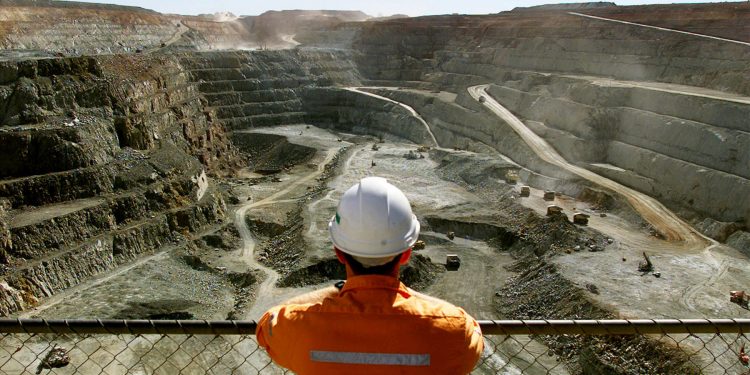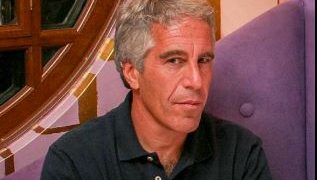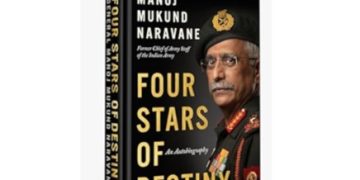Sophia Kalantzakos
The climate crisis and the Fourth Industrial Revolution – with its breakthrough technologies such as artificial intelligence and 5G networks – are setting the world on a geopolitical collision course. Both the drive to decarbonise and the battle for global technological supremacy depend on critical minerals like rare earth, lithium, and cobalt – all of which are highly concentrated in a few locations, including China.
The scramble to control these elements’ supply chains is intensifying. For example, the electric vehicles made by Tesla and other automotive firms run on lithium-ion batteries, but just a handful of countries produce most of the world’s lithium. The tension between the geographic concentration of critical resources and the increasing global competition for supply will further unsettle geopolitics in the twenty-first century.
A long era of stable resource competition is thus rapidly ending. Historically, empires locked in their economic supply chains and managed competition. And in the long post-1945 cycle of decolonisation, the US, as the global economic hegemon, backstopped the rules and norms of world trade. At the same time, supplies of critical resources – in particular, fossil fuels – became more dispersed as improved geological information and new technologies (like deep-sea drilling and fracking) helped to loosen OPEC’s grip.
But today, conditions have flipped. Critical minerals for the digital and post-carbon economy are highly concentrated geographically, while the end of US unipolarity and increasing global trade uncertainties have triggered a rush to secure them.
China’s global rise underpins the competition-concentration tension. Industrial innovation and production are no longer the exclusive purview of the OECD economies, especially the US, European Union member states, and Japan. These major powers previously secured critical inputs through colonial expansion and resource carve-ups, but China’s export ambitions, and its control of key supply chains, have changed the game. Moreover, China’s Belt and Road Initiative (BRI) – a transnational infrastructure investment scheme with participating countries across Africa, Eurasia, and South America – openly challenges earlier models of access and cooperation.
Governments in the Global South, where many critical resources are located, are frequently willing to strike exclusive deals. They have welcomed China’s one-stop-shop financing schemes, increased engagement, and narrative of ‘win-win partnerships’ that offer a reliable alternative to Western funding and norm-setting.
China’s resource domination is reshaping geopolitics. In 2010, China halved its export quotas for rare earths, and also reportedly banned their sale to Japan following a trawler incident near Japan’s Senkaku Islands, which China calls the Diaoyu Islands and claims as its own. The episode awakened other leading economies to the fact that a major competitor and rival controlled 97 per cent of the global supply of these vital inputs for magnets, glass, electronics, defense systems, wind turbines, and hybrid and electric vehicles.
The US, the EU, and Japan reacted in a piecemeal manner at best, and ten years later still haven’t produced effective strategies to free themselves from China’s resource grip. Rare earths made headlines again in 2019, when China indicated that it might ‘weaponise’ them in its trade dispute with the US. Meanwhile, breathless media reports of rare-earth discoveries in Afghanistan, Greenland’s melting glaciers, the abyssal sea, asteroids, and planets demonstrate that magical thinking continues to trump effective policymaking.
Likewise, decarbonisation places a premium on further breakthroughs in battery technology and storage, which is why global lithium production skyrocketed from 32,500 tonnes in 2015 to 95,000 tonnes in 2018. Two of the three politically and economically volatile countries in the so-called ‘lithium triangle’ – Chile, and Bolivia – are all BRI participants and receive substantial Chinese investment, the third, Argentina, is considering joining. Because none has the capacity for vertical integration, China controls more than 60 per cent of global manufacturing capacity for lithium-ion batteries. Even Australia, which has substantial rare-earth and lithium reserves, has so far failed to become an ‘independent’ alternative supplier.
Cobalt, another key battery input, is overwhelmingly mined in the Democratic Republic of the Congo. The DRC has the world’s largest cobalt reserves – three times those of Australia, which ranks second – and produces 60 per cent of global mined cobalt. The country remains the most cost-competitive producer, with China the dominant investor, although an outcry over labour practices has raised questions about ethical mining.
How might rich-country governments best manage the competition-concentration tension regarding critical minerals, especially if traditional global institutions are on the wane? One option is to revive the old colonial model of carving up regions to manage competition. But although China has been able to extend its global economic influence without the baggage of having been a colonial power, the EU, US, and Japan can no longer play that game successfully. Smaller developing countries now have other options and preferences, and often side with China, Russia, India, or other powers.
Alternatively, the traditional powers could begin to build a new framework for cooperation. But President Trump’s ‘America First’ posturing and a lack of coordination among former allies currently stand in the way. In addition, business is not wired to put geopolitics above the bottom line. Repeated calls by governments to desinicise supply chains achieve little; ministers fulminate about competition but do not address the needs and interests of countries where key strategic resources are concentrated.
China has demonstrated its increasing economic power by systematically forging a global network of partners. The powers of old must now build new avenues of trust and cooperation with developing countries, not only to secure the critical minerals vital to powering the world in the Anthropocene era, but also because a perilous planet is a threat to everyone.
The writer is Professor of Environmental Studies and Public Policy at New York University/NYU Abu Dhabi. ©Project Syndicate.






































